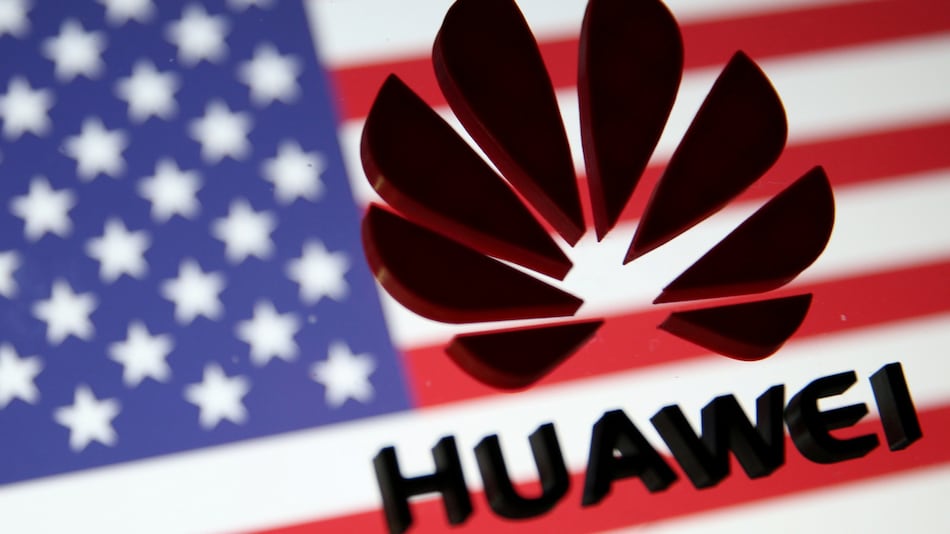
On a cold February morning at the Brooklyn Navy Yard, the skeleton of a modern 15-story building was rising from a muddy construction site along the East River. As long and as tall as a cruise ship, the sleek glass structure loomed above rusty, century-old dry docks, serving notice to the industrial neighborhood that the new economy was coming.
The project, known as Dock 72, is the brainchild of WeWork, the fast-growing New York start-up valued at a whopping $20 billion. In just eight years, WeWork has built a network of 212 shared working spaces around the globe. But WeWork’s chief executive and co-founder, Adam Neumann, isn’t content to just lease out communal offices. Mr. Neumann — a lanky, longhaired 38-year-old Israeli — wants nothing less than to radically transform the way we work, live and play.
When Dock 72 is completed this year, if the aggressive timeline holds, it will represent the fullest expression of Mr. Neumann’s expansive vision to date. There will be an enormous co-working space, a luxury spa and large offices, for other companies like IBM and Verizon, that are designed and run by WeWork. There will be a juice bar, a real bar, a gym with a boxing studio, an outdoor basketball court and panoramic vistas of Manhattan. There will be restaurants and maybe even dry cleaning services and a barbershop.
It will be the kind of place you never have to leave until you need to go to sleep — and if Mr. Neumann has his way, you’ll sleep at one of the apartments he is renting nearby
It’s an all-encompassing sort of ambition, and Mr. Neumann is the brash and idealistic pitchman. Simply by encouraging strangers to share a beer at the office, he argues, WeWork can heal our fractured society.
“How do you change the world?” Mr. Neumann asked in a recent interview. “Bring people together. Where is the easiest big place to bring people together? In the work environment.”

It may sound simplistic, but around the globe, companies are buying whatever it is that Mr. Neumann and his co-founder, Miguel McKelvey, are selling. WeWork has rapidly expanded to 20 countries, assembled a formidable executive team and attracted some 200,000 members. Big companies like JPMorgan Chase and Siemens are signing on as tenants, and revenues are growing fast, expected to top $2.3 billion this year.
WeWork last year bought the iconic Lord & Taylor building on Fifth Avenue in Manhattan, which is being transformed into the company’s new headquarters. That deal was made possible in part by a recent $4.4 billion investment from SoftBank, the Japanese technology group led by the enigmatic billionaire Masayoshi Son.
Already the company has started WeLive, its residential offering, and Rise, its gym. It acquired Meetup, the social network that facilitates in-person gatherings, and the Flatiron School, a coding academy. Still to come: WeGrow, the company’s for-profit elementary school, set to open in September. WeWork has even invested in plans to create giant wave pools for inland surfing.
A company ostensibly about co-working now employs yoga instructors, architects, teachers, environmental scientists, software engineers, molecular biologists and social psychologists.
Is it all a bit much for a young company still trying to build out its core business? “I’ve made that argument,” said Bruce Dunlevie, a WeWork board member and partner at the venture capital firm Benchmark. But, he said, “great entrepreneurs like Adam don’t listen to guys like me.”
As WeWork expands in all directions, it faces persistent questions about its rich valuation and the durability of its business model. Critics argue that the company does little more than corporate real estate arbitrage — leasing a space, spiffing it up, then subleasing it out to other tenants. The company owns hardly any properties, giving it precious few hard assets. Its growth projections strike many as unattainable, and it has missed expectations before. A number of upstarts loom as potential competitors, seeking to replicate WeWork’s success. And many WeWork tenants are unproven start-ups that could quickly fold.
IWG, a publicly traded co-working company that has more members and more real estate than WeWork, is valued at just $2 billion. Yet Mr. Neumann has convinced investors that WeWork is worth 10 times that figure.
“Adam’s explanation for the valuation of WeWork speaks for itself,” said Chris Kelly, co-founder and president of Convene, a company that offers flexible event spaces and is backed by major real estate firms. “This is not an Excel spreadsheet calculation. He believes there’s an energy behind the brand, and he’s gotten people to invest at that valuation. He has not tried to explain it in traditional financial terms.”
Indeed, to assess WeWork by conventional metrics is to miss the point, according to Mr. Neumann. WeWork isn’t really a real estate company. It’s a state of consciousness, he argues, a generation of interconnected emotionally intelligent entrepreneurs. And Mr. Neumann, with his combination of inspiration and chutzpah, wants to transform not just the way we work and live, but the very world we live in.

It’s an audacious, perhaps delusional plan for a company that made its mark by building communal desks and providing refreshments. And so far, it seems to be working.
Mr. Son, WeWork’s largest investor, is betting that the company will grow exponentially in the years to come, making his multibillion-dollar investment a veritable bargain.
“Make it 10 times bigger than your original plan,” Mr. Son told Forbes late last year. “If you think in that manner, the valuation is cheap. It can be worth a few hundred billion dollars.”
Close Communities
The notion that white-collar workers might actually like their offices is a relatively new one. From the countinghouses of industrial England to the skyscrapers of 1980s Manhattan, offices were mostly uninspiring places designed to maximize space, often with row upon row of unglamorous desks.
“The only kind of model that anyone had for laying out a large workplace was a factory,” said Nikil Saval, author of “Cubed: A Secret History of the Workplace.” “So the office was made to resemble an assembly line.”
This dreary state of affairs began to change in earnest, at least for some, during the dot-com bubble. Tech companies built playful offices with beanbags and Ping-Pong tables, making work spaces less formal. Free food became commonplace.
Raised expectations for amenities and interior design gradually seeped into the mainstream, and today, more and more employees — especially millennials — expect enlightened, unconventional offices.
Enter WeWork. With people bouncing between employers, jobs concentrated in cities and technology making it easier to work remotely, the demand for co-working was suddenly real, and ready to be monetized. Mr. Neumann, who grew up on a kibbutz in Israel, had an epiphany: Bring the communal vibe to the office.
Soon he and a friend — Mr. McKelvey, an equally tall Oregonian who grew up on a collective and was working as an architect — founded an eco-friendly co-working space in Brooklyn. They sold it, but they quickly turned around and started WeWork in 2010.
“Me and Miguel have this common ground,” Mr. Neumann said. “We both grew up in very close communities.”

WeWork didn’t invent co-working spaces, of course. IWG, better known as Regus, has been around for decades. But Mr. Neumann and Mr. McKelvey quickly hit upon a recipe that drew throngs of start-ups: an industrial chic aesthetic, some big common areas with comfy couches, free beer and piped-in pop music.
Individuals pay as little as $45 a month for occasional access to a desk in a common area. Start-ups can pay a few thousand dollars for a private room on a month-to-month basis, and some big companies pay millions of dollars a year for spaces that hold thousands of employees over multiple locations.
It’s a formula that has caught on from New York to Tel Aviv to Shanghai. In New York alone, WeWork has 49 spaces, most of them nearly full. At the WeWork in Harlem, dance companies share space with hair care start-ups in a common area adorned with murals of jazz musicians. At a WeWork in TriBeCa, fashion designers and alcohol distributors work shoulder to shoulder in a spartan space decorated with neon lighting.
For WeWork to really succeed in changing the way we all work, it is going to have to win over big corporations seeking space for thousands of employees. The strategy is an odd reversal for WeWork, which made its name catering to freelancers and start-ups.
The Weather Channel recently moved its ad sales team into an enormous WeWork in Midtown Manhattan. Barbara Bekkedahl, who runs the group, said the transition was easy and the space comfortable and stylish.
But Ms. Bekkedahl had a complaint, too, one that highlights one of the downsides of communal work space. She suggested that the hygienic and sartorial habits of some of her new office mates were lacking.
“As a TV sales team, we groom and dress for outside sales,” she said. “Some of the techie and start-up types housed at WeWork aren’t facing customers all day, so don’t always have the same standards.”
Gripes about grooming are unlikely to slow down WeWork’s business with corporate clients, especially if Mr. Neumann makes good on his promise to save them money. Because WeWork is building out so much space and buying so much furniture, Mr. Neumann says, he can renovate and operate an office for a fraction of the cost that companies would normally spend.
“We have economies of scale,” he said. “I’ll cut your operational costs between 20 to 50 percent.”
It might seem like another instance of Mr. Neumann’s talking a big game but for the fact that more and more companies — GE, HSBC, Salesforce and Microsoft among them — are signing on.
For years now, big companies have outsourced payroll processing, janitorial services and security. It’s not a stretch to imagine more of them outsourcing the design and maintenance of their offices to a company like WeWork.
“We only have 200,000 members,” Mr. McKelvey, 43, said. “That’s ridiculous. We need to have two million and then 20 million.
Source:_nytimesa



